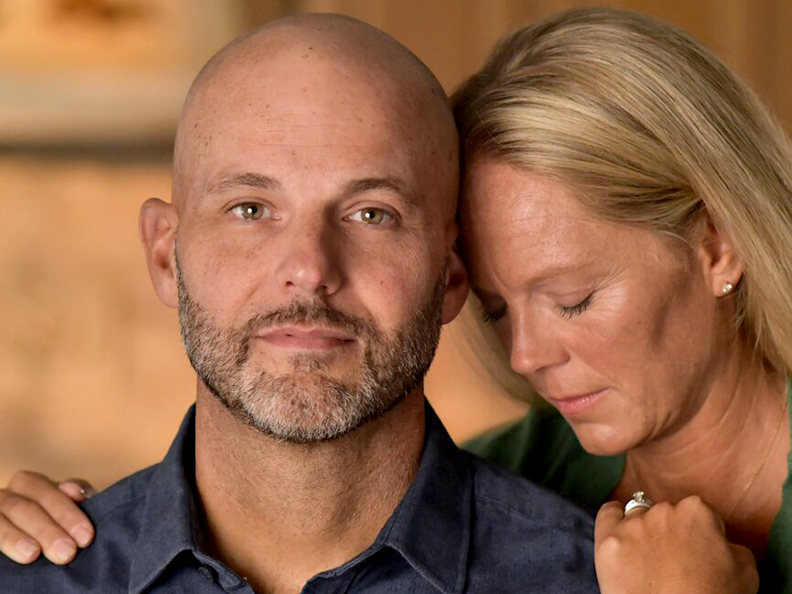Your gift is 100% tax deductible
Palliative Care for a Cancer of Unknown Primary
Some cancers of unknown primary (CUP) can be treated effectively or even cured, but most are advanced cancers and treatments are unlikely to provide long-term benefits. It’s very important that people with advanced CUP are aware that even if the cancer can’t be cured, treatments are available to help prevent or relieve pain and other symptoms.
Many patients with CUP may benefit from palliative care as part of their treatment plan. Palliative care includes supportive care managed by your care team, such as relief from symptoms, pain, and stress. It’s meant to improve quality of life for patients and their families. Treatment to control the cancer may also be included in a supportive care plan. More information can be found in Advanced Cancer.
Palliative care for pain from cancers of unknown primary (CUP)
Pain is a significant concern for patients with CUP. There are proven ways to relieve pain due to CUP using a combination of medicines and, in some cases, surgical procedures. Patients should not hesitate to take advantage of these treatments. They must tell their doctors if they have pain. Otherwise, the doctor can’t help. For most patients, treatment with morphine or drugs related to it (called opioids) can reduce pain considerably while still allowing them to function well. For the treatment to be effective, pain medicines must be given regularly on a schedule, not just when the pain becomes severe. Several long-acting opioid drugs have been developed that need only to be given once or twice a day.
For more information on pain, what can be done about it, and how to keep track of it, see Cancer-related Pain .
More information about palliative care
To learn more about how palliative care can be used to help control or reduce symptoms caused by cancer, see Palliative Care.
To learn about some of the side effects of cancer or treatment and how to manage them, see Managing Cancer-related Side Effects.
- Written by
- References

Developed by the American Cancer Society medical and editorial content team with medical review and contribution by the American Society of Clinical Oncology (ASCO).
Bochtler T, Löffler H, Krämer A. Diagnosis and management of metastatic neoplasms with unknown primary. Semin Diagn Pathol. 2018 May;35(3):199-206. doi: 10.1053/j.semdp.2017.11.013. Epub 2017 Nov 26. PMID: 29203116.
Greco FA, Hainsworth JD. Carcinoma of Unknown Primary In: DeVita VT, Lawrence TS, Rosenberg SA, eds. DeVita, Hellman, and Rosenberg’s Cancer: Principles and Practice of Oncology. 10th ed. Philadelphia, PA: Lippincott Williams & Wilkins 2015: 1719-1736.
National Cancer Institute. Physician Data Query (PDQ). Cancer of Unknown Primary Treatment. 05/06/2024. Accessed at: https://www.cancer.gov/types/unknown-primary/hp/unknown-primary-treatment-pdq on April 22, 2025.
National Comprehensive Cancer Network. NCCN Clinical Practice Guidelines in Oncology: Occult Primary (Cancer of Unknown Primary). v.2.2025. Accessed at https://www.nccn.org/professionals/physician_gls/pdf/btc.pdf on April 22, 2025.Tomuleasa C, Zaharie F, Muresan MS, et al. How to diagnose and treat a cancer of unknown primary site. J Gastrointestin Liver Dis. 2017 Mar;26(1):69-79. doi: 10.15403/jgld.2014.1121.261.haz.
Varadhachary GR, Lenzi R, Raber MN, Abbruzzese JL. Carcinoma of Unknown Primary In: Neiderhuber JE, Armitage JO, Doroshow JH, Kastan MB, Tepper JE, eds. Abeloff’s Clinical Oncology. 5th ed. Philadelphia, PA. Elsevier: 2014:1792-1803.
Last Revised: May 27, 2025
American Cancer Society medical information is copyrighted material. For reprint requests, please see our Content Usage Policy.
American Cancer Society Emails
Sign up to stay up-to-date with news, valuable information, and ways to get involved with the American Cancer Society.



